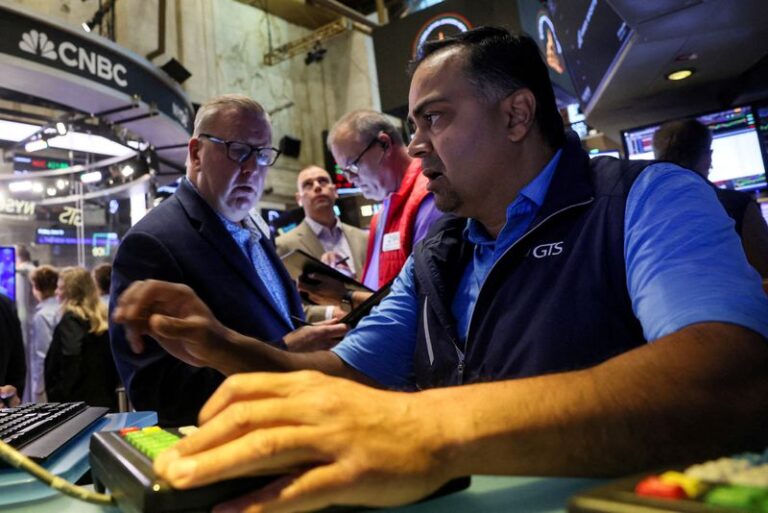Davide Barbuscia and Matt Treacy
NEW YORK (Reuters) – The spread between yields on U.S. investment-grade corporate bonds and U.S. Treasuries has surged to its highest level in more than three months, a sign of risk aversion amid political uncertainty in France and soaring U.S. Treasury prices.
Spreads indicate the premium investors demand to hold corporate bonds over safer government securities. The spread on the ICE BofA U.S. Corporate Bond Index, a commonly used benchmark for high-quality bonds, rose to 96 basis points this week, the highest level since mid-March.
Meanwhile, the Markit CDX North American Investment Grade Index, a basket of credit default swaps that acts as a gauge of credit risk, expanded to an intraday record of more than 54 basis points on Friday, its biggest gain since May 1.
The move comes after turmoil in financial markets in France, where investors sold government bonds ahead of surprise parliamentary elections, fearing a fiscal crisis in the euro zone’s second-largest economy.
The sell-off in U.S. corporate bonds was partly driven by a “flight to quality” due to political uncertainty, with investors moving into safer U.S. Treasuries, which also rallied this month on better-than-expected inflation data, Barclays strategists said in a report on Friday.
Larger-than-expected investment-grade corporate bond issuance also contributed to the widening of spreads, the people said. More than $31.4 billion in deals were priced this week, beating expectations of $27 billion, according to IFR data.
Treasury yields, which move inversely to prices, have fallen this month, with the benchmark 10-year Treasury yield falling to 4.269% on Friday from 4.554% at the end of May. The rise has “investors looking for a little more reward for taking on credit risk,” said Blair Schwed, head of fixed-income sales and trading at U.S. Bank.
Still, a strong U.S. economy despite high borrowing costs and the outlook for lower interest rates means credit spreads remain historically tight. At this time last year, investment-grade spreads were at 135 basis points.
Daniel Kreator, director of fixed-income strategy at BMO Capital Markets, said it’s too early to tell whether the recent sell-off represents a buying opportunity or a sign that spreads are moving into a new trading range following strong demand earlier this year.
“The answer will not be known until the French election is over, and spreads are unlikely to move significantly until the election risk has passed at the earliest,” he said in a Friday note.
(Reporting by Davide Barbuscia and Matt Tracey; Editing by Josie Kao)

